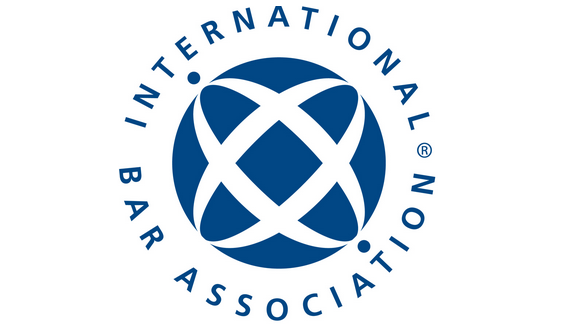It was recently approved in Parliament the Government’s Bill with the measures of the Mais Habitação program that aim to change the existing regimes in terms of property taxation.
Municipal Property Tax (IMI)
- Land located inside or outside an urban agglomeration will be considered as land for construction:
- For which a license or prior favorable communication of a subdivision or construction operation has been granted;
- That have been communicated by the municipalities to the Tax and Customs Authority as suitable for construction under the terms of the applicable territorial management instruments.
- With the exception of land on which the competent authorities prohibit any of the operations referred to in point a), namely those located in green areas, protected areas or which, in accordance with municipal land-use plans, are allocated to public spaces, infrastructure or equipment;
- For the purposes of the assessment, the coefficient of vetustez of the buildings that constitute, totally or partially, local accommodation establishments, in the amount of 1, is added;
- The municipalities, by resolution of the municipal assembly, may now increase the rate applicable to rustic buildings with forest areas that are in a situation of abandonment up to three times, and the application of this increase may not result in a tax collection of less than (euro) 20 for each building covered;
- The values for the fixed deduction of the IMI rate applicable to the building or part of the urban building intended for the taxpayer’s own and permanent residence or that of his household, and which is effectively used for such purpose, are increased, taking into account the number of dependents who, under the terms of the IRS Code, make up the respective household;
- The rates to which urban buildings or autonomous fractions that have been vacant for more than one year, buildings in ruins, as well as land for construction inserted in urban soil and whose qualification in a municipal land use plan attributes aptitude for housing use, whenever they are located in areas of urban pressure, are increased:
- For the determination of the taxable value, the values contained in art. 135-C CIMI are not deductible for urban buildings that have been vacant for more than one year, partially vacant or buildings in ruins, whose state of conservation has not been motivated by natural disaster or calamity.
- The IMI exemptions for urban housing buildings whose construction, expansion, improvement or acquisition for consideration occurred in the year 2022, are extendable for two more years, by resolution of the municipal assembly, which must be communicated to the AT by electronic data transmission until December 31 to be in force in the following year.
- If it occurred at an earlier time, in 2022 if they have benefited from the IMI exemption under the terms of art. 46/1 EBF, they are also extendable for another two years, by means of a resolution of the municipal assembly, which must be communicated to the AT by electronic data transmission until December 31st to take effect in the following year. In addition, the years already elapsed are deducted from the duration of the exemption.
- Land for construction is exempt from IMI if the prior control procedure for construction works of real estate with residential use has been initiated with the competent authority, and for which there has not yet been a final decision, express or tacit, of the procedure, as well as buildings in which the prior control procedure for residential use has been initiated with the competent authority, and for which there has not yet been a final decision, express or tacit, of the procedure.
- Urban buildings or autonomous fractions, acquired, rehabilitated or built for use in the Rental Support Program may also benefit from the IMI exemption;
- Urban buildings classified as “housing under the Rental Support Program are excluded from the additional IMI;
- The IMI exemption is also applicable to properties acquired, rehabilitated or built, allocated to rental, within the scope of housing programs promoted by the entities with competence in the area of housing in the Autonomous Regions;
- The tax becomes due only from:
- the year, inclusive, in which the fraction of the territory and other elements referred to in Article 2 are to be classified as a building;
- The year following the end of the exemption situation, unless the taxable person benefiting from the exemption acquires a new building for his own permanent residence and continues to hold the right of ownership of the exempted building, in which case the tax is due in the year in which the building ceased to be inhabited by its owner;
- The year, inclusive, of the completion of building work, improvements or other alterations which have determined the change in the taxable assessed value of a building.
Municipal Tax on the Transfer of Real Estate (IMT)
- Article 45-A is added to the EBF, which stipulates that the acquisition of building land for the construction of residential properties is exempt from IMT provided that the following cumulative requirements are met:
- At least 700/1000 of the buildings in horizontal ownership, or the totality of the buildings in total ownership or autonomous fractions, are allocated to the Rental Support Program, regardless of the promoter, provided that they are certified by the IHRU, I. P., or, when promoted in the Autonomous Region of Madeira or in the Autonomous Region of the Azores, by the IHM or by the Regional Housing Directorate of the Azores;
- The prior control procedure for construction works, defined in Article 2 b) of the legal regime of urbanization and building, approved by Decree-Law no. 555/99, of 16 December, in its current wording, of real estate with residential use is initiated with the competent entity within two years after acquisition.
- Urban buildings or autonomous fractions, acquired, rehabilitated or built for use in the Rental Support Program may also benefit from the IMT exemption.
- The IMT exemption is also applicable to properties acquired, rehabilitated or built, for rental purposes, within the scope of housing programs promoted by the entities with competence in the area of housing in the Autonomous Regions.
- The exemption from IMT on the acquisition of real estate for resale now requires that the real estate be sold within a maximum period of one year, instead of the current three years.













